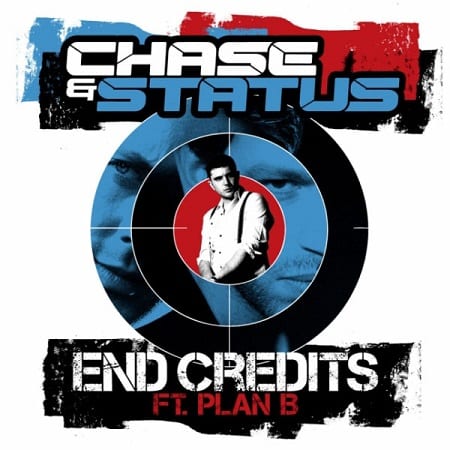Sit back and enjoy a symposium of minds between two of grime’s undisputed legends.
Logan Sama is the busiest man in the scene. Starting off on pirate radio in 2002, he’s worked relentlessly to establish himself as grime’s chief ambassador. There isn’t a tune he hasn’t heard or a producer he hasn’t met; he’s the genre’s foremost focal point and fervent flag-bearer.
Over a decade of grafting has resulted in a huge moment for the aficionado and for the genre; Sama is behind the latest FABRICLIVE instalment. It’s a 24 track compilation consisting solely of previously unheard dubplates from the scene’s most experienced producers, MCs and freshest talents.
One of the many names on the album is Terror Danjah…
With a discography that goes back to the turn of the century, he’s widely regarded as one of the finest grime producers among the cognoscenti. Quite simply, without Terror’s influence, grime wouldn’t sound like it does today.
So without further ado, it’s over to Logan and Terror…
Terror: There’s only one place to start: the FABRICLIVE album. Are you happy with how it came out?
Logan: Yeah man, it’s a really big look for grime and it was really fun to do. The album covers the full spectrum; there’s people on there who’ve been around since day dot like Wiley, Jammer, Davinche and yourself and then you’ve got the current hype names like Preditah, Mystry, Jammz and The Heavytrackerz. It’s really nice to see that everyone has different favourites – there isn’t one tune that everyone has been talking about, it’s a real mix, which shows that I’ve done a good job.
Terror: Sounds good to me. What was the aim behind it?
Logan: The whole point of the CD wasn’t for me to show off how many unreleased tunes I had up my sleeve, it was just a chance for me to give everyone an armoury of new fresh tunes to play, and a chance for me to support the artists I respect.
Logan: Sticking with the album – your track Crud is on there – can we expect to hear more music from you in the future?
Terror: Definitely. To be part of the CD is almost like having a single release for me, it’s massive. It kind of feels like a kick-starter after taking time out for personal reasons. I’m now ready to get back in the studio and I’m gonna use this energy as a platform. This album feels like a huge event for the whole of grime, a bit like how Lord Of The Mics did.
Logan: Wicked. I’ve been really happy about the number of people who have commented on your tune – it’s a big look to have you back.
Terror: As someone who’s been here from the start, do you think grime is a healthy genre?
Logan: Grime is a land of opportunity right now. I wouldn’t say it’s a massively thriving scene but it’s doing really well for a handful of people. If your name is Skepta, Stormzy or JME you’re in a lovely place. Collectively, those guys are shining a light on the genre so bright that people are looking for the next big thing, which is why the likes of Novelist and The Square are getting the opportunities they deserve. Even my work is increasing as a result of those names making it big because people want to find more tunes and delve deeper into the genre. If you’re coming with the fire, grime is a good place to be.
Terror: I definitely agree with that. If someone new comes along with a bit of energy and vibe they’ll get picked up instantly, just look at how the likes of Preditah have risen so quickly. It seems to be split into two sides; you’ve got the instrumentation side and you’ve got the more MC led side. Overall I think this makes grime a good but weird place – but there’s nothing wrong with weird.
Logan: What’s the main change you’ve witnessed since starting out?
Terror: Where grime was back in 2003 is very different to where it is now. For us, as the elder statesmen of the scene, I think we have to choose carefully what tunes we play these days; we have to play a mix of older and newer music, whereas back in the day we could be a bit more free with what we played
Logan: That’s true. For me, a big change I’ve noticed is how in the mid 90’s people were selling millions of albums on a regular basis but last year I think only one person sold one million albums in the UK, so it’s a very different time and a very different way in which people get their music across all genres. In the 90’s, the only thing that mattered was getting on Top Of The Pops, but now there are tunes like Harlem Shake that would obviously never feature on TOTP but they’re huge because of how viral it went due largely to the internet.
Terror: Yeah, selling 300 records now is like the equivalent of selling 1,000 ten years ago! Back in the day that was a flop but now it’s a success, that’s how the music industry has changed.
Terror: There’s a big night coming up at Fabric tonight, are you excited?
Logan: Yeah, can’t wait! When you’re doing something at Fabric you’re not just getting your own fans, people come from all over the world to go so you’re basically expanding your audience by playing there. One of the most attractive things about doing something with them is that it encourages people who don’t usually listen to grime to dig a bit deeper into the genre. Fabric has always supported grime but it’s not necessarily strongly associated with it, so hopefully the album will reach a wider audience of people.
Terror: And there’s quite a few artists on the album on the bill too.
Logan: Yep, it’s great to have some names from the album playing with us, it’ll be the first time playing in the main room for some of them.
Logan: You always used to mix with vinyl – is that still the case?
Terror: Nope! I don’t carry vinyl anymore, carrying five or six cases of it seems like a foreign concept these days when you can just carry a laptop and USB stick. One of my last memories of vinyl was when you played a garage set at Cable and the decks weren’t set up properly, they were just playing at any random speeds!
Logan: Ha yup, that was a nightmare. We’ve both had times where we’ve turned up to a club to find they don’t have 1210s set up or we took vinyl on a flight to find that some of it got lost on the way.
Terror: Take us back to the beginning…
Logan: When I started doing this thing nobody was making music with the idea of making millions, we were doing it because it was a form of expression. A lot of us weren’t looking past getting played on pirate radio or getting white label releases. It started out as something cool to do and then it became our careers.
Terror: Oh man, I can relate to that; I was only selling one or two records when Wiley was selling boxes!
Logan: Grime’s been around for thirteen years now, so rather than it being a weird new genre that nobody understands like it was when I first started, it’s a mainstay that’s been there for the duration of many people’s musical upbringings.
Logan: Marketing is becoming increasingly important in the music industry – do you think it has changed the quality of output?
Terror: The increase in marketing doesn’t mean the music is any better or worse, in my opinion. Music never stopped being about marketing, it’s just something that changes over the years. Things sell in different ways and things get exposed in different ways. People who are holding on to 90’s business methods and structures are gonna be disappointed because it’s not like that anymore.
Logan: In the early days I drove around London selling records out the back of my boot – that was how we generated revenue. That just isn’t possible anymore; there’s been a big dearth in the industry in terms of opportunities for people to make money.
Terror: What’s your view on all the attention Skepta is getting at the moment?
Logan: Skepta is making proper grime music and he’s not changing it up to pander to a wider audience, the music he’s putting out now doesn’t sound drastically different to the music he was putting out in 2005. There’s clear progression in his MC style but sonically it’s very similar, so when people hear his tunes they’re gonna get the genuine grime sound, not a washed-up approximation that’s watered down and sanitised for the mainstream. I think it’s great for all of us!
Terror: It’s taken him twelve years to get there but he’s at the top where he belongs, he proves that as an artist you can stay true to your sound and go ‘mainstream’ if you do it well.
Terror: And finally, what’s your favourite aspect of your job?
Logan: The favourite part of my job is finding new music; I’m a real collector. I love acquiring new tracks and discovering new sounds. Being able to put this album enabled me to do that more than ever, and it was a dream come true.
Join Logan, Terror, Wiley, Elijah and many more tonight, October 10, at FABRICLIVE
Image credit: Jimmy Mould


